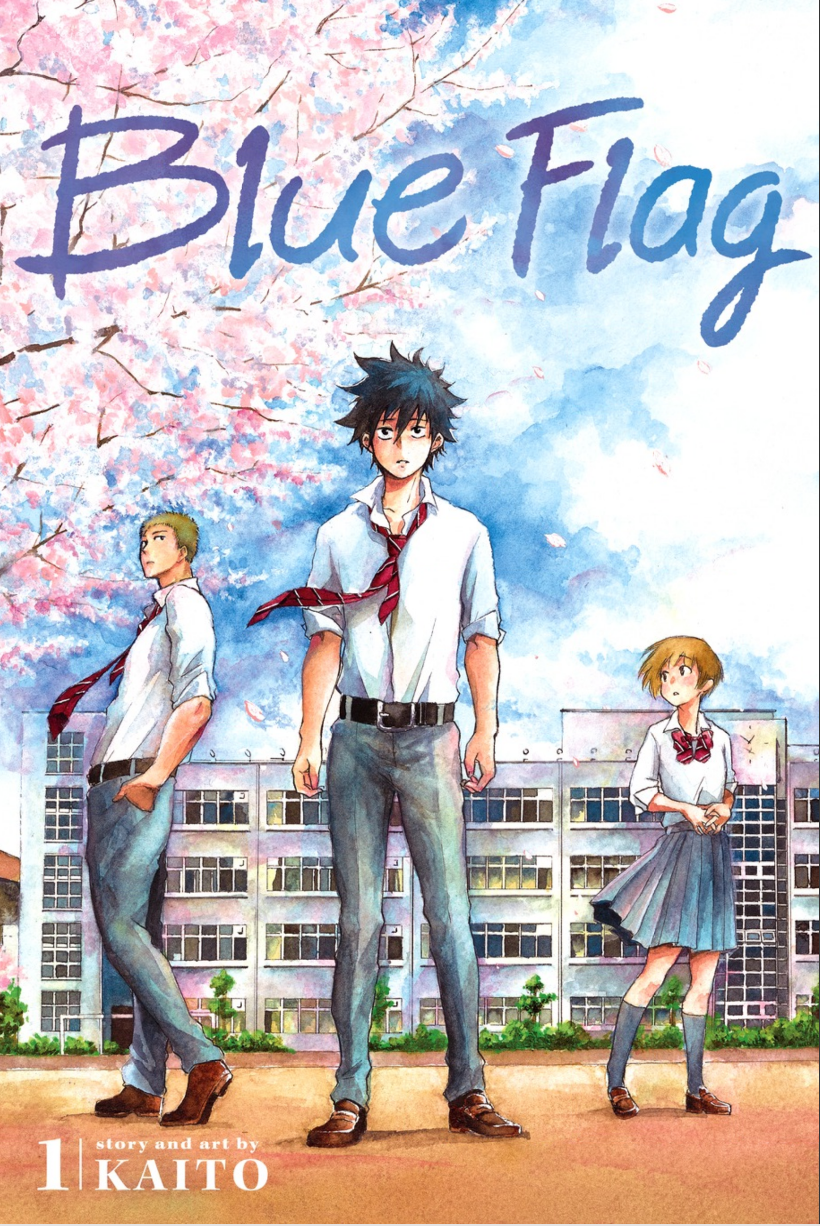Blue Flag Volume 1 by KAITO
It is fair to say that I read plenty of manga, but now and then I read a series that is just so well executed that it feels incredibly refreshing. I knew Blue Flag had plenty of fans, and I was excited to read it when I heard that it was licensed, but my high expectations were surpassed by the first volume.
The volume opens with some character introductions that remind most readers of standard characters, but the insightful look into Taichi’s inner thoughts as he starts a new school year plays against readers expecting something more stereotypical. Taichi has a small friend group, who all look like they came out of a shonen playbook of nerd 101. He’s fairly content with remaining under the radar at school, but something quickly breaks him out of his usual routine. Taichi’s elementary school friend Toma is going to be in Taichi’s class for the first time in several years. Taichi and Toma are opposites in many ways. Taichi is short and has hair that seems to defy any grooming attempt. Toma is tall, athletic, and extremely popular, but his effortless way of making friends is the result of him being genuinely nice rather than anything overly calculated. Taichi’s friends consider Toma to be a different species than them, and are mystified that Toma keeps popping up to keep randomly talk to Taichi even though Taichi claims that they aren’t close anymore.
Taichi seems to have a special kind of antipathy to Futuba Kuze, a girl in his class who is painfully shy and clumsy. He starts to realize that he’s reminded of his own failings when he looks at her, because she’s similar to him. After an incredibly awkward chance encounter in the library, Futuba asks Taichi for advice because she has a crush on Toma. He thinks that any help he would provide would be useless, but she’s incredibly determined, following up with any random reference that Taichi tosses out. Eventually Taichi agrees to serve as Futuba’s spectacularly uninformed tutor in the ways of teen romance. Taichi is brutally realistic with Futuba about her chances of attracting Toma, but she’s not fazed by the idea that she isn’t his type. Eventually Taichi and Futuba strike up an odd friendship as he keeps trying to draw her in to his usual interactions with Toma. Blue Flag is invested with a ton of emotional resonance as the characters investigate childhood games, deal with homework, and share memories. Futuba explains to Taichi that one of the reasons she’s been nursing a crush towards Toma is that when he accidentally knocked down her plant in the school garden with a stray baseball, he returned every day until it was healthy again.
Towards the end of the volume, the reader gets a sense of what is actually happening in Toma’s head and the realization that the love story that’s unfolding is going to be much more complex and surprising than one would think. Blue Flag rewards the re-reader, who will be able to go back and detect hints in the body language and attitudes of the characters. This is by far one of the most promising shonen series I’ve read in a long time, and the focus on the emotional complexity of teenage live reminded me a bit of Cross Game. I highly recommend Blue Flag, and I’m impatiently waiting for the next volume.

Speak Your Mind